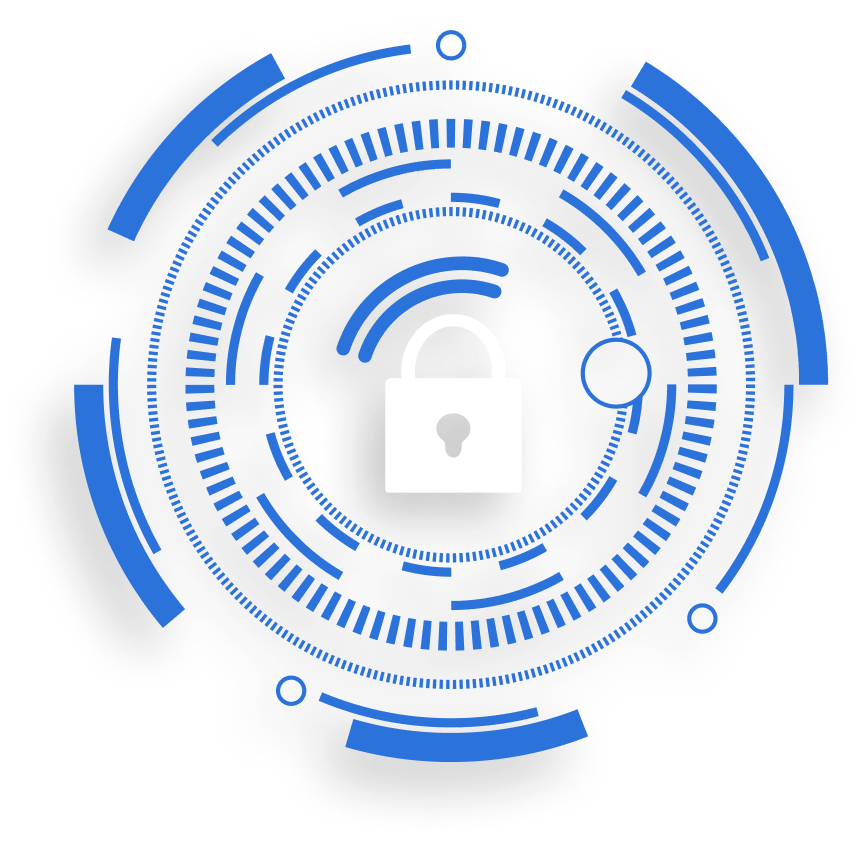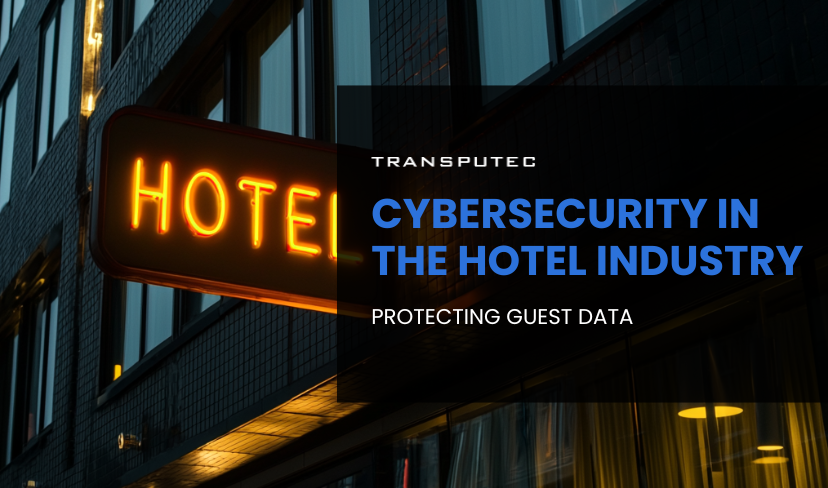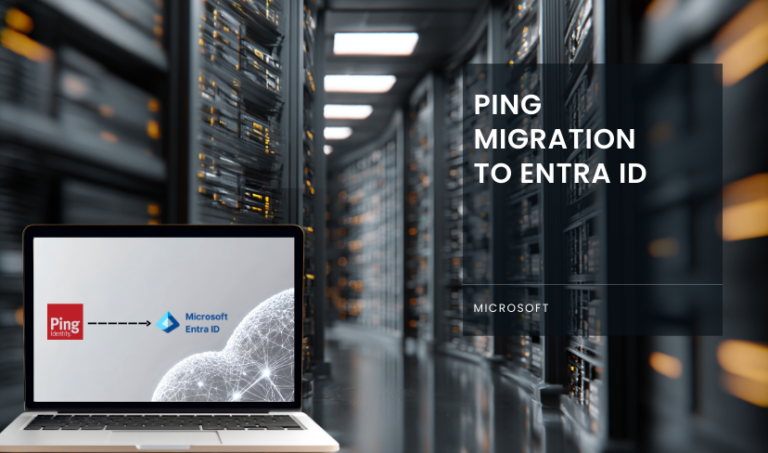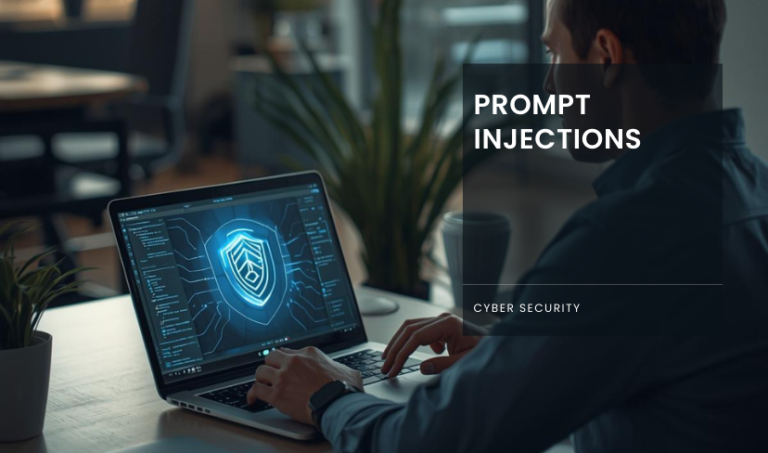Written by KRITIKA SINHA | MARKETING
Imagine a hotel’s check-in system frozen during peak hours or sensitive guest data, including payment details, being sold on the dark web. Such cybersecurity incidents can erode customer trust, disrupt operations, and damage the reputation of even the most luxurious hotels. This challenge isn’t hypothetical; it’s the alarming reality for many businesses in the hospitality sector, where the rapid adoption of digital systems has left many hotels vulnerable to cyberattacks.
In this blog, we’ll uncover the key threats facing hotels, explore actionable steps to strengthen cybersecurity in the hotel industry, and explain how Transputec offers a comprehensive solution to secure operations, protect customer data, and ensure compliance with data protection standards.
Future of Cybersecurity in the Hotel Industry
With the integration of artificial intelligence (AI), machine learning, and blockchain in cybersecurity, the hospitality sector can adopt more proactive defense mechanisms. AI-powered systems can detect anomalies early, and blockchain can ensure secure transactions.
Hotels must also anticipate regulatory changes as governments tighten data protection laws to respond to growing digital threats. Staying ahead requires continuous investment in cybersecurity measures and a partnership with experts like Transputec.
The Importance of Cybersecurity in the Hotel Industry
Hotels handle a treasure trove of sensitive information—names, addresses, passport details, credit card numbers, and even preferences. As hotels digitise operations, incorporating IoT devices, mobile apps, and cloud-based booking systems, their risk exposure multiplies. Cybercriminals recognise the hospitality sector as a lucrative target because of its blend of valuable data and sometimes weak defences.
Startling Facts:
- According to IBM’s Cost of a Data Breach Report 2022, the global average cost of a data breach in hospitality exceeds $2.6 million.
- Nearly 89% of UK hotels lack adequate endpoint security, making them vulnerable to breaches and ransomware.
- Phishing attacks in hospitality have spiked by 30% since 2021.
Hotels face increasing regulatory pressure, including compliance with GDPR, PCI DSS, and national data security laws. Non-compliance can result in steep fines, further incentivising robust cybersecurity practices.
Protect your Business 24/7 with Transputec!
Our Managed SOC Cost Calculator estimates potential expenses for security tools and other costs based on your requirements.
Threats in the Digital Era
Cybersecurity in the hotel industry must address diverse, evolving threats. Here are the major ones to watch for:
1. Ransomware Attacks
Hackers use ransomware to encrypt critical hotel systems, including reservation platforms or payment networks, demanding a ransom for their release. Such incidents can halt operations and lead to loss of revenue.
2. Point-of-Sale (POS) Malware
Point-of-sale systems are a prime target, as they process guests’ payment details. Breaches in POS systems can expose sensitive cardholder data, resulting in financial losses and reputational harm.
3. Phishing Schemes
Employees and guests alike can fall victim to phishing emails that mimic legitimate communications. One misplaced click could expose login credentials or sensitive hotel data.
4. IoT Vulnerabilities
Modern hotels rely on IoT devices for room management, lighting, and security. Poorly secured devices can act as entry points for cybercriminals into a hotel’s broader network.
5. Insider Threats
Disgruntled employees or inadequate access controls can lead to unauthorised access to data systems, exposing guest information.
How Hotels Can Safeguard Guest Data
Protecting guest information requires a multi-faceted approach that combines technology, policies, and education.
1. Adopt Strong Authentication Measures
Switch to multi-factor authentication (MFA) for both employees and customers. MFA significantly reduces the chances of unauthorised access to sensitive systems.
2. Encryption is Non-Negotiable
Encrypt data, both at rest and in transit, ensuring that even if hackers intercept it, the data remains unreadable.
3. Regular Cybersecurity Audits
Hotels should schedule frequent audits to identify vulnerabilities in systems, networks, and devices. Audit results provide actionable insights to enhance defences.
4. Employee Training Programs
Training front-line staff to recognise phishing emails, social engineering tactics, and other risks can significantly reduce the likelihood of breaches caused by human error.
5. Incident Response Plans
Prepare a robust incident response strategy so the hotel can react swiftly to minimise damage in the event of a breach.
How Transputec’s Cybersecurity Safeguards Hotels
Transputec specialises in designing and implementing robust cybersecurity solutions tailored to the hospitality industry’s unique needs. Here’s how we support hotels:
1. Comprehensive Risk Assessment
Transputec identifies vulnerabilities in your IT systems and develops a roadmap for strengthening your security posture.
2. 24/7 Threat Monitoring
Our Security Operations Centre provides round-the-clock surveillance to detect and respond to threats in real time.
3. Ransomware Mitigation Strategies
We deploy advanced endpoint security and backup solutions to counter ransomware attacks and ensure business continuity.
4. Compliance Enablement
Transputec helps hotels comply with GDPR, PCI DSS, and other regulatory requirements, reducing the risk of non-compliance penalties.
5. Tailored Employee Training
We provide customised cybersecurity training sessions for your staff, making them the first line of defence against potential breaches.
Conclusion
Cybersecurity in the hotel industry is no longer optional; it’s a business imperative. From ransomware threats to IoT vulnerabilities, the challenges are significant—but solvable with the right measures. Adopting best practices such as encryption, employee training, and incident response planning, and partnering with cybersecurity specialists, can help hotels safeguard guest data, maintain compliance, and build trust with their customers.
Partner with Transputec today to secure your operations and protect your guests in the digital age. Contact us now to connect with an expert and start your cybersecurity journey.

Secure Your Business!
Ready to explore how we can enhance your security posture? Contact us today to speak with one of our experts.
FAQs
Why is cybersecurity important in the hotel industry?
Hotels handle sensitive guest data, such as payment details and personal identification. Robust cybersecurity prevents data breaches, avoids regulatory fines, and protects the brand’s reputation.
How does Transputec improve hotel cybersecurity?
Transputec offers risk assessments, 24/7 threat monitoring, ransomware mitigation, compliance support, and employee training tailored to the hospitality industry.
What are the main cybersecurity risks faced by hotels?
Hotels face threats such as ransomware, phishing, POS malware, IoT vulnerabilities, and insider threats. Proactive measures are essential to mitigate these risks.
How can hotels prevent data breaches?
Hotels can prevent data breaches by adopting MFA, encrypting data, conducting regular cybersecurity audits, training employees, and having a robust incident response plan in place.
How can I get started with Transputec?
Contact Transputec to book a consultation. Our experts will assess your hotel’s current security infrastructure and craft a tailored plan to address your specific vulnerabilities.




